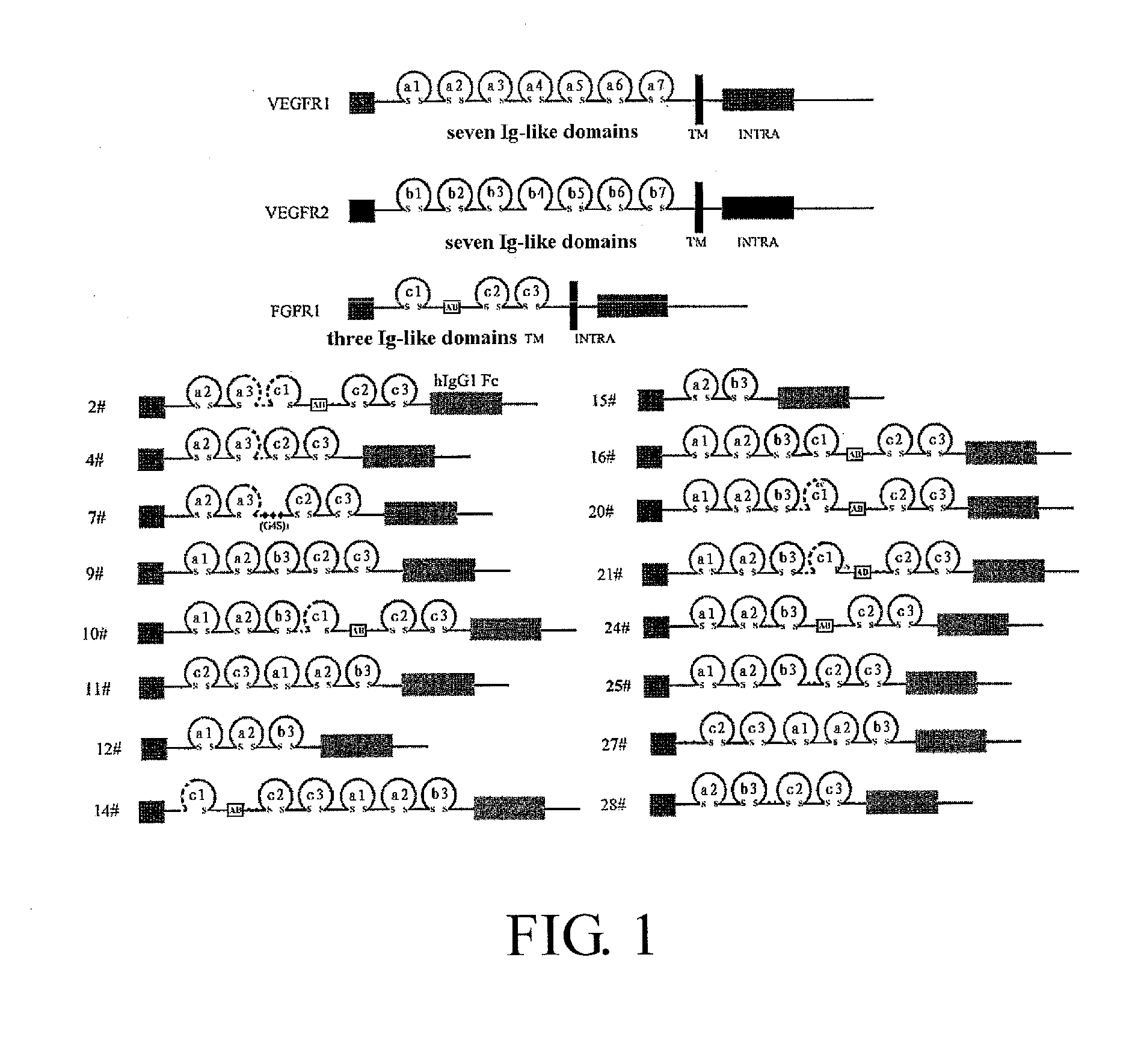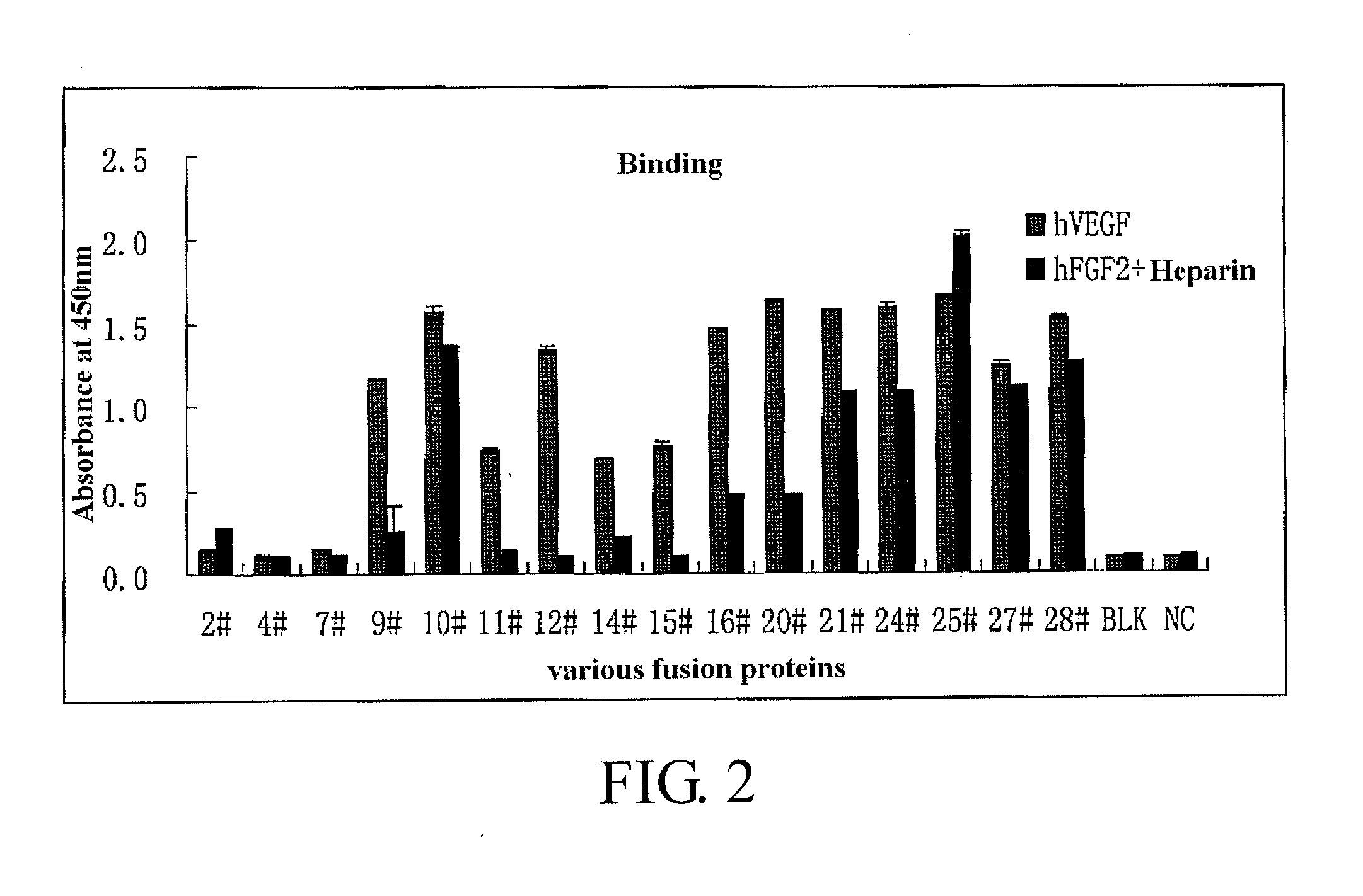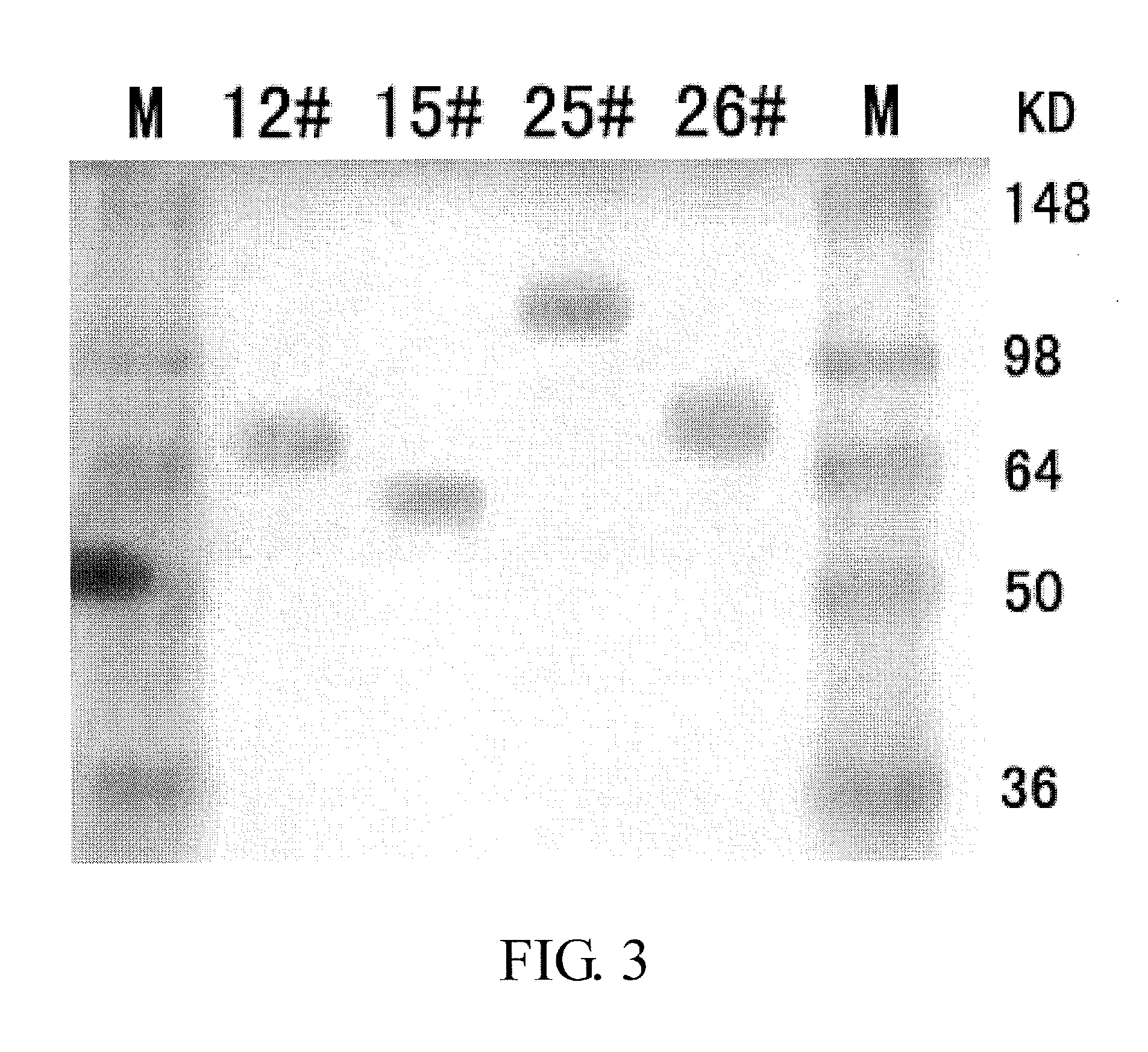Fusion protein for antagonizing angiogenesis inducible factors and uses thereof
a technology of angiogenesis and inducible factors, which is applied in the direction of angiogenin, transferases, peptide/protein ingredients, etc., can solve the problems of ineffective inhibition of tumor blood vessel growth over long term with avastin, and complicated dynamic equilibrium process of angiogenesis regulation
- Summary
- Abstract
- Description
- Claims
- Application Information
AI Technical Summary
Benefits of technology
Problems solved by technology
Method used
Image
Examples
example 1
Construction of Recombinant Expression Plasmid for the Dual-Target Fusion Protein
[0195]A commercially available cDNA (PCR Ready First Strand cDNA, derived from human adult colon cancer tissue, BioChain) is used as the template for FGFR1 fragment. A commercially available plasmid pBLAST45-hFLT1s7cDNA (InvivoGen) is used as the template for VEGFR1 fragment, and a commercially available plasmid pBLAST45-hFLK1s7 (InvivoGen) is used as the template for VEGFR2 fragment.
[0196]Total RNA is extracted from the blood of healthy human subjects using human blood RNA extraction kit (QIAGEN). According to the manufacturer's instruction of reverse transcription kit (Promega), RT-PCR is performed using M-MLV reverse transcriptase (Promega) so that RNA is reversely transcribed to cDNA is for use as the template for IgG1 Fc fragment. RT-PCR is performed according to the manufacturer's instruction of reverse transcription kit, which has the following steps: Oligo dT, dNTP, total RNA and DEPC H2O are mi...
example 2
Transient Expression and Quantification of the Fusion Proteins
[0208]The DNA of individual fusion protein plasmid is purified using MAX Plasmid Purification Kit (Qiagen). The concentration of the plasmid DNA is determined by UV spectrophotometry. 1 μg recombinant plasmid and 6 μL liposome (FuGENE 6 Transfection Reagent, Roche) are homogeneously mixed into 100 μL fresh IMDM culture broth (GIBCO); after standing for 15 min, the mixture is added to the CHO cells (ATCC) cultured overnight after inoculation at a cell density of 3×105 / mL into a 6-well plate; the mixture is cultured at 37° C. in an incubator supplemented with 5% CO2 for 48 h with a cell complete culture broth containing 88% IMDM, 10% FBS, 1% HT and 1% glutamine (all supplied by GIBCO); subsequently, the supernatant is collected and determined for the relative content of the fusion protein using human IgG ELISA kit for protein quantification (BETHYL).
[0209]The relative content of the fusion protein expressed and secreted by ...
example 3
Binding of the Fusion Proteins
[0210]The binding capacities of the fusion proteins as constructed above to VEGF and FGF-2 are detected using ELISA. Initially, a 96-well ELISA plate (IMMULON Company) is coated by 100 μL solution (100 ng / mL heparin (Sigma) contained) containing 20 ng / mL VEGF (R & D Systems) and 50 ng / mL FGF-2 (R & D Systems). Subsequently, the plate is washed in 300 μL PBST washing solution for 5 times before each coated well is blocked in 200 μL freshly prepared blocking working solution (KPL Company) (blocking stock solution:PBS=1:19) and incubated at 37° C. for 1 h. After washed in 300 μL PBST washing solution for 5 times, 100 μL solutions of various fusion proteins (dissolve in PBS, pH=7.2, concentration of 20 ng / ml) are added and incubated at 37° C. for 2 h. After washed in 3004 PBST washing solution for 5 times, 100 μL anti-human IgG Fc-HRP secondary antibody (BETHYL Company) diluted with PBS in a ratio of 1:10000 is added and incubated at 37° C. for 1 h. After w...
PUM
| Property | Measurement | Unit |
|---|---|---|
| half survival time | aaaaa | aaaaa |
| half survival time | aaaaa | aaaaa |
| temperature | aaaaa | aaaaa |
Abstract
Description
Claims
Application Information
 Login to View More
Login to View More - R&D
- Intellectual Property
- Life Sciences
- Materials
- Tech Scout
- Unparalleled Data Quality
- Higher Quality Content
- 60% Fewer Hallucinations
Browse by: Latest US Patents, China's latest patents, Technical Efficacy Thesaurus, Application Domain, Technology Topic, Popular Technical Reports.
© 2025 PatSnap. All rights reserved.Legal|Privacy policy|Modern Slavery Act Transparency Statement|Sitemap|About US| Contact US: help@patsnap.com



